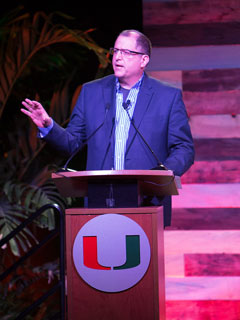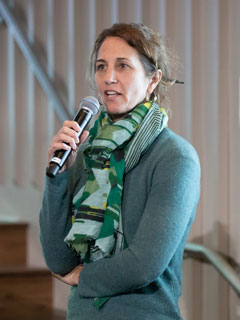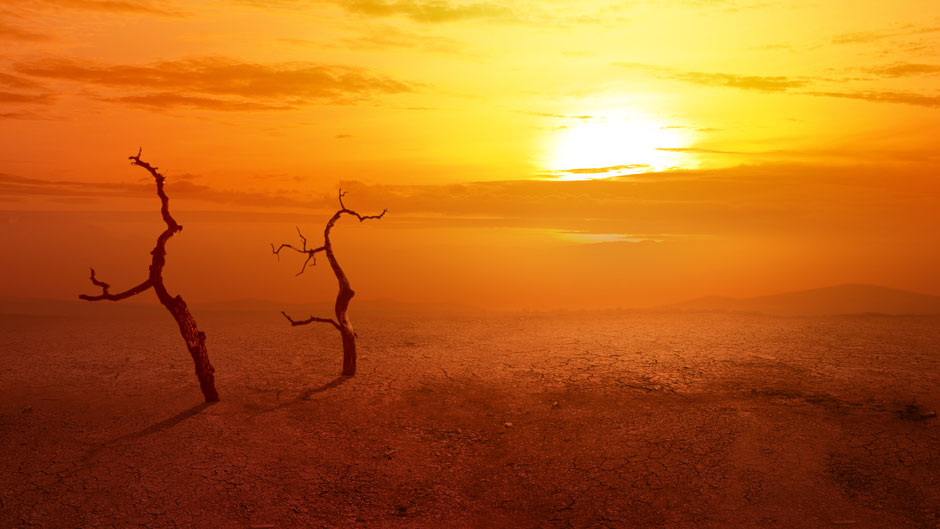One of the cultural changes ushered in by the COVID-19 pandemic—working remotely rather than commuting to an office—has the potential to help Americans curb their carbon footprints during an important moment in the climate crisis, said Ben Kirtman, professor of atmospheric sciences at the University of Miami Rosenstiel School of Marine and Atmospheric Science.
In the first six months of 2020, the economic shutdown of COVID-19 prompted carbon dioxide emissions from surface transportation and aviation to be cut by about half, Kirtman said, which translated to an 8 percent decrease in America’s overall carbon emissions. Although the concentration of carbon dioxide in the earth’s atmosphere is still high, because there is a lag for the gas to exit the atmosphere, Kirtman was encouraged by the data.
“That’s pretty impressive,” Kirtman remarked. “It gives you a sense that we could, if we came together and had some coherent policies worldwide about how to handle emissions, make significant reductions.”

Kirtman made these comments during a virtual discussion Wednesday about “Climate Science in the Age of COVID.” It was the first of three Climate Café webinars hosted by the Rosenstiel School of Marine and Atmospheric Science to spread awareness of the school’s research on climate change.
As part of the discussion, Amy Clement, a professor of atmospheric sciences who also focuses her research on climate change, explained to the more than 150 participants that the University hopes to share its research, so that it can help shape environmental policy.
“Our goal is to inform you about the many different aspects of climate science that are happening here at the Rosenstiel School and how our research activities can be used to inform policy,” she said.
Second year Ph.D. student Sisam Shrestha, provided an overview of some of the most harmful extreme weather events this year. She highlighted the Australian bushfires, which just ended in May. They destroyed a fifth of the nation’s forests, created the highest wildfire plume ever captured on satellite images, and caused unprecedented damage to the atmosphere, Shrestha pointed out.
In addition, the Siberian heat wave, which stretched through the first half of 2020, prompted temperatures to rise above 100 degrees in the Russian town of Verkhoyansk.
“These are the highest temperatures recorded inside the Arctic Circle to date,” she added.

Shrestha also spoke about the Saharan dust outbreak that traveled across the Atlantic Ocean from Africa and arrived in Florida recently. It managed to make it all the way to New Orleans and Texas, which was the longest distance seen. It was also the thickest and largest dust outbreak on record.
Locally, she cited some 2020 Miami record numbers collected by Brian McNoldy, a senior research associate at the Rosenstiel School. According to Shrestha, the first third of the year was the hottest on record. In addition, Miami also saw its wettest May and hottest July this year.
As part of the discussion, doctoral student Marybeth Arcodia summarized the research of students working under Kirtman, Clement, and Brian Soden, a professor of atmospheric sciences. The studies help understand and predict more accurately future climate fluctuations, extreme weather—such as hurricanes—and precipitation patterns.
Kirtman, who works to create models forecasting the effects of climate change, such as sea level rise, said the University’s new partnership with the National Oceanic and Atmospheric Administration on the Cooperative Institute for Marine and Atmospheric Studies is already allowing them to get more refined data. For example, a few weeks before Hurricane Isaias formed, their models predicted a disturbance. They were able to deploy data collection “drifter” in the Caribbean before the storm arrived.
Regardless, the challenge of anticipating the exact ways that climate change will affect our environment is massive. Therefore, participants asked what they can do to stem the acceleration of global warming.
Clement urged participants to get involved in their local communities to ensure that government is preparing for the inevitable impacts of climate change, and mentioned that she serves as chair of the City of Miami’s Climate Resilience Committee, but that local organizations like Miami Waterkeeper, the CLEO Institute, and Catalyst are also very productive. She also indicated that consuming less meat could counteract carbon emissions as well as choosing to drive a low-carbon-emissions car.
Kirtman agreed, adding how essential it is that the world safeguards its rainforests and that people plant trees, which work to offset the harmful effects of carbon emissions by producing oxygen.
“We have these enormous biological sinks of greenhouse gases and these are the rainforests around the world,” he said. “We need to do everything we can to protect those.’’
The next, one-hour Climate Café is scheduled for Thursday, Aug. 20 at 11:30 a.m. It focuses on “Building Climate Resilience for Florida’s Reefs and Coastlines.” Register for the session here. The final Climate Café—“Economic and Societal Impacts of a Changing Climate’’—is slated for Sept. 2 at 12 p.m. Register here to attend that seminar.

